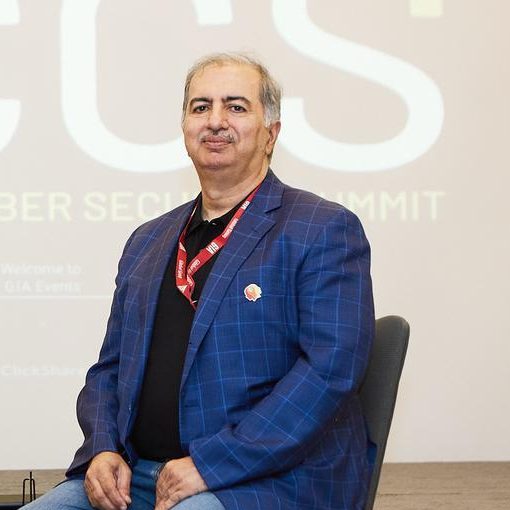How the UAE is Strengthening Its Cyber Defenses with Advanced SOC Services
The United Arab Emirates (UAE) is at the forefront of digital transformation, leading the Middle East in adopting cutting-edge technology. As businesses and government entities continue their rapid digitalization, cybersecurity has become a national priority. The increasing number of cyber threats targeting financial institutions, critical infrastructure, and enterprises has fueled the demand for advanced Security Operations Centers (SOCs). These centers act as the first line of defense against cyberattacks, monitoring, analyzing, and mitigating threats in real time.
“The UAE is rapidly becoming a hub for Security Operations Centers, attracting global cybersecurity firms and fostering a robust ecosystem for threat intelligence and response. The government’s strategic vision and investments in digital security are positioning the country as a leader in cybersecurity resilience.”
Several factors have contributed to the rapid expansion of SOC services in the UAE. The UAE government has played a crucial role in driving the establishment of SOCs. The introduction of policies such as the National Cybersecurity Strategy (2019) and the UAE Information Assurance Standards has compelled organizations to bolster their cybersecurity postures. Furthermore, the Dubai Cyber Security Strategy and the Abu Dhabi Digital Authority’s cybersecurity frameworks emphasize the need for 24/7 monitoring and rapid threat response capabilities.
“Cybersecurity is no longer optional—it is an essential pillar of business resilience. At Finesse, we are committed to providing cutting-edge SOC solutions that empower organizations to detect, respond to, and mitigate cyber threats effectively.” – Sunil Paul, CEO, Finesse.

The UAE is a hub for global businesses, making it an attractive target for cybercriminals. The rise in ransomware attacks, data breaches, and nation-state cyber espionage has necessitated proactive security measures. In 2023 alone, cyberattacks in the region saw a significant increase, with phishing, distributed denial-of-service (DDoS), and advanced persistent threats (APTs) among the most common attack vectors.
The widespread adoption of cloud services and IoT devices has expanded the attack surface for cyber threats. Organizations in sectors such as finance, healthcare, and government have migrated to cloud platforms, necessitating continuous monitoring and security event management. SOCs provide the necessary threat intelligence and response mechanisms to safeguard digital assets.
Global cybersecurity firms and local enterprises have invested heavily in SOC infrastructure within the UAE. Collaborations between the government and private sector entities have led to the development of next-generation SOCs equipped with artificial intelligence (AI), machine learning (ML), and automation to detect and mitigate cyber threats efficiently.

“The UAE has rapidly become a digital hub, driving innovation across key industries while facing a surge in cyber threats. In response, the country is undergoing a cybersecurity revolution, with heavy investment in Security Operations Centers (SOCs). These SOCs are evolving from reactive units to proactive command centers powered by AI, threat intelligence, and automation. Beyond cyber resilience, they play a crucial role in regulatory compliance with frameworks like the UAE Information Assurance Standards and the Dubai Cyber Security Strategy. This transformation highlights the UAE’s commitment to securing its digital future.” – Anwar Mohammed, Associate Vice President, RAKBANK
With the introduction of data protection regulations such as the UAE Data Protection Law and compliance mandates under the General Data Protection Regulation (GDPR), businesses are required to ensure that their cybersecurity frameworks are robust. SOCs help organizations comply with these regulations by offering real-time security monitoring, threat intelligence, and risk management solutions.
“The rise of SOC (Security Operations Center) is be attributed to the rise of cyber attacks. Likewise, the evolution of SOC is attributed to the evolution of cyber attacks from a traditional mode to AI mode. The question is whether SOC is another fad or if it adds value to organizations, irrespective of whether it is in-house or outsourced. In the current threat scenario, SOC is a necessity, but it has to be enabled and leveraged to add value through three strategies. First, you need to fully leverage the capability of AI with appropriate human intervention to reduce cost and redundancies in threat operations. Second, the organizational structure of SOC needs to be aligned with the organizational culture, size, and sector. Third, it needs to be fully flexible enough to reflect and fully adapt to the changing threat landscape.” – Bharat Raigangar, Board Advisor, 1CxO, vCISO CyberSecurist & Mentor.

The Role of SOCs in Cyber Defense
Security Operations Centers play a vital role in maintaining the cybersecurity resilience of organizations by offering the following services:
- Threat Intelligence and Detection: SOCs use AI-driven analytics to detect anomalies and potential threats in network traffic.
- Incident Response and Mitigation: They provide real-time incident response to neutralize threats before they escalate.
- Security Compliance Monitoring: Ensuring organizations meet regulatory requirements and industry standards.
- Forensic Investigation: Analyzing cyber incidents to understand attack patterns and prevent future threats.
- Continuous Monitoring: 24/7 surveillance of IT infrastructure to detect potential security risks.

“Cybersecurity incidents can happen to any organization and it’s a matter of time! Timely detection, monitoring and proactive responses are critical for the effective management of cyber attacks to reduce the business impact. The digital transformation happened across the country and the aggressive pace of technology adoption by organizations increased the cyber threats alarmingly. This combined with continuous awareness and public private collaboration from UAE National Cybersecurity council has resulted in tightening the cyber defenses across the country! Security Operations Centers became One of the minimum components of any organization’s Cyber Defense ecosystem! Those who wants to have the capability faster and, in a cost, effective manner, started adopting managed SOC services!” – Illyas Kooliyankal, CEO, CyberShelter
Leading SOC Providers in the UAE
Several SOC providers have established a strong presence in the UAE, offering comprehensive cybersecurity solutions tailored to various industries. Below is a table highlighting some of the leading SOC providers and their specializations:
| SOC Providers | Specialization |
| CyberSapiens | AI-powered security solutions, real-time threat monitoring, incident response |
| Help AG | Threat identification, security incident handling, AI and machine learning |
| Etisalat Digital | Security monitoring, threat intelligence, incident response, AI and ML |
| du | 24/7 security monitoring, threat identification, threat hunting, AI and ML |
| Nexa Technologies | Threat intelligence, incident response, security monitoring with human expertise |
| Paramount Computer Systems | Security monitoring, threat detection and response, AI and ML |
| Spire Solutions | Threat intelligence, incident response, security monitoring with human analysts |
| Cytelligence | Security monitoring, threat intelligence, incident management, AI and ML |
| CyberKnight Technologies | Cloud-based security solutions, real-time threat detection, incident response, compliance management |
| Finesse | End-to-end security solutions, threat intelligence, security orchestration |
| CyberShelter | Threat Intelligence Management, Threat hunting, Attack Surface Reduction and Threat Defense Operations with Creative and comprehensive use cases. |
| CPX – a G42 Company | Specializes in monitoring, detecting, and responding to cybersecurity incidents |
| DigiGlass – a Redington Company | 24/7 threat monitoring and detection, Incident response, Advanced threat intelligence, Vulnerability management |
One notable example of SOC efficiency in the UAE is the protection of financial institutions. Banks and fintech companies have been prime targets for cybercriminals due to the vast amount of sensitive customer data they handle. A leading SOC provider partnered with major banks in the UAE to implement a next-generation SOC framework that integrates AI-driven security analytics, automated threat detection, and proactive incident response. As a result, fraud attempts and data breaches were significantly reduced, ensuring the security of financial transactions and customer information.

“Security teams are familiar with relying on an SOC for the correlation of security events to enable a coordinated incident response. However, I’d argue they will benefit even more from information that includes the potential financial and operational impact of knowing their enterprise risk even before an incident happens, so as to be better prepared and one step ahead. There is that word again: “risk”. Organizations need to have a risk operations center, or ROC, to manage decisions proactively around risk. The ROC provides a unified risk approach where asset inventories and risk telemetry are combined with business context and threat intelligence to form a single-pane, real-time view of the environment that makes risk triage more straightforward and relevant to each organization’s unique situation at any point in time.” – Mayuresh Ektare, VP of Product Management, Qualys
Future Outlook: What’s Next for SOCs in the UAE?
The UAE’s cybersecurity landscape is poised for further expansion, with emerging technologies reshaping SOC capabilities. Some key trends include:
- AI and Automation: Advanced AI algorithms will play a larger role in threat prediction and response, reducing the time required to identify and neutralize cyber threats.
- Cloud-Based SOCs: As more organizations move to cloud environments, cloud-native SOCs will become a preferred solution for security monitoring.
- Zero Trust Security Frameworks: SOCs will increasingly adopt zero-trust models, ensuring that no entity—inside or outside the network—is trusted by default.
- Threat Hunting and Intelligence Sharing: Enhanced collaboration between government agencies, enterprises, and SOC providers will improve threat intelligence sharing and proactive cyber defense measures.
- Blockchain Security Solutions: With the UAE embracing blockchain technology, SOCs will need to integrate security measures specifically designed to protect blockchain-based systems.
“For Managed Service Providers (MSPs), the opportunity to build and deliver managed security services has never been more significant. By leveraging an integrated security platform, MSPs can efficiently manage threat intelligence, incident response, and compliance from a unified interface, eliminating complexity while maximizing operational efficiency.
Traditional SOC models can be costly and resource-intensive. To overcome these challenges, MSPs should consider embracing a platform-based approach that consolidates security tools, streamlines operations, and enables automation. This not only enhances their ability to deliver enterprise-grade security at scale but also ensures they can adapt to the ever-changing threat landscape with agility.
Building a traditional SOC can be resource-intensive for MSPs, but adopting a platform-based approach simplifies operations. A centralized security platform enables scalability, automation, and real-time threat intelligence.” – Santiago Pontiroli, Lead TRU Researcher, Acronis

Conclusion
The rapid rise of Security Operations Centers in the UAE highlights the nation’s commitment to cybersecurity excellence. With government backing, technological advancements, and strong industry partnerships, the UAE is setting a global benchmark in cyber defense. As the digital economy grows, SOCs will remain a critical pillar in securing the nation’s businesses, government entities, and citizens against evolving cyber threats.


